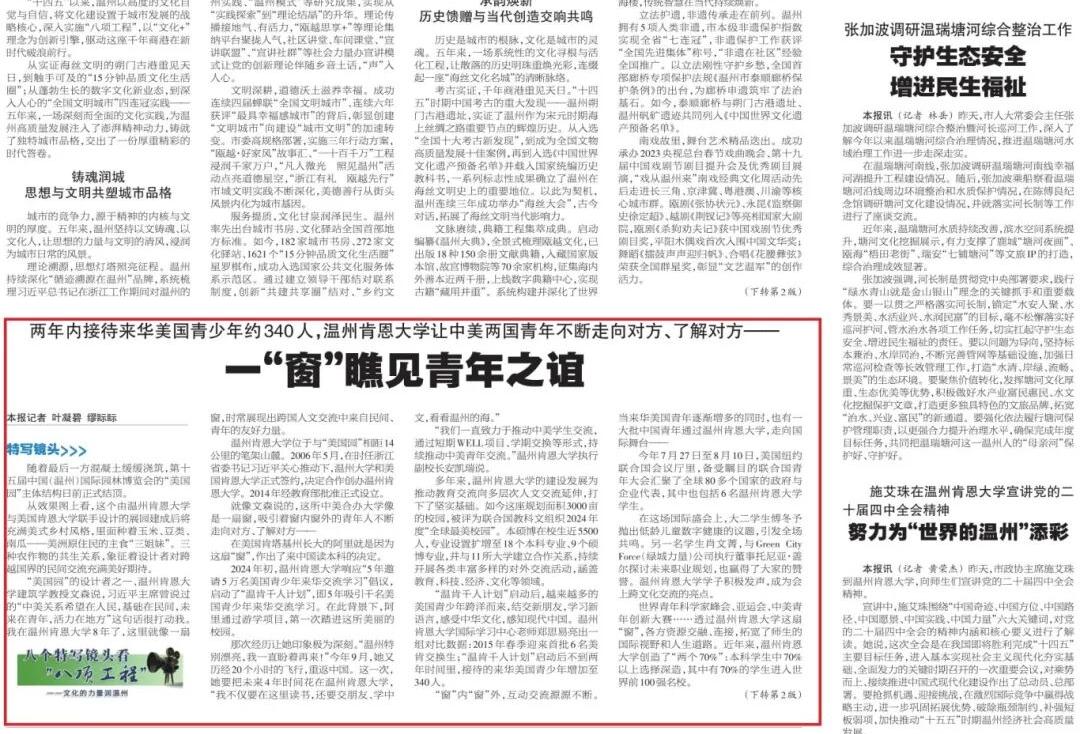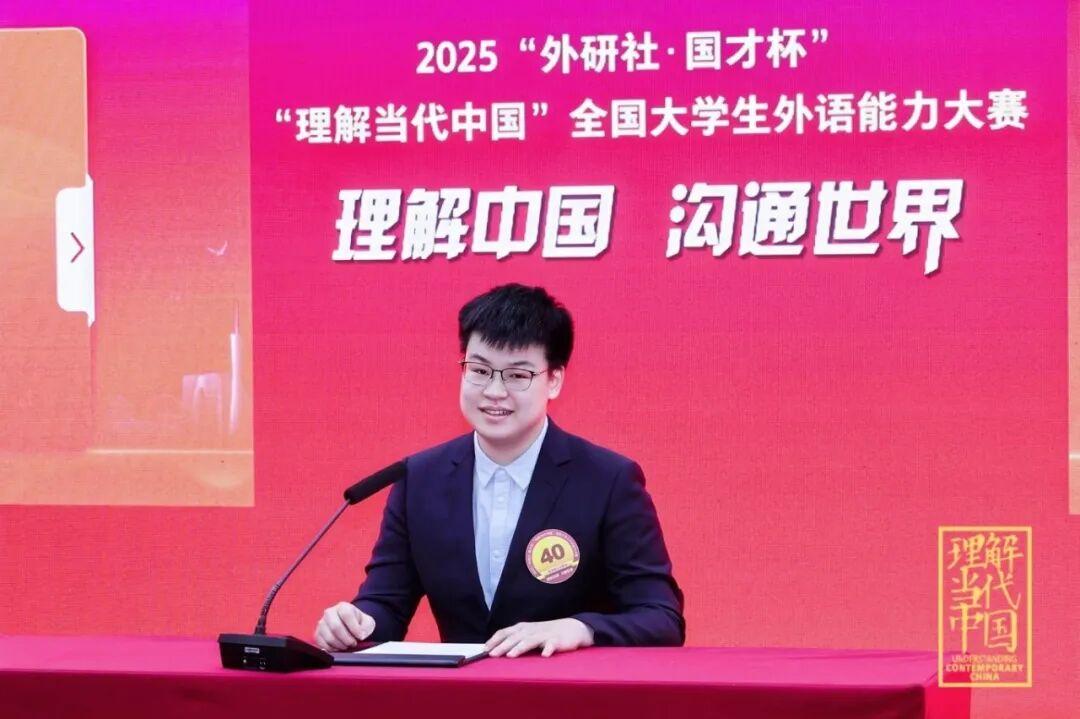
Kennedy Ehimwenma
-
Position:Lecturer of Computer Science
-
College:College of Science, Mathematics and Technology
-
Office:GHK C219
-
E-mail:
Education
Ken E. Ehimwenma, N.C.E., B.Sc., M.A., Ph.D.
N.C.E. in Physics and Chemistry
College of Education, Benin City
B.Sc.Ed.(Hon) in Computer Science
University of Benin, Benin City
M.A. in Info. Comm. Tech. and Education
University of Leeds, Leeds
Ph.D. in Computer Science
Sheffield Hallam University, Sheffield
Biography
Dr. Ken Ehimwenma, Department of Computer Science.
Ph.D. Computer Science; M.A. Information Communication Technology & Education; B.Sc.Ed.(Hon) Computer Science; N.C.E. Physics & Chemistry.
Dr Ehimwenma completed his Ph.D. at the Sheffield Hallam University United Kingdom with specialization in multi-agent systems, knowledge representation and reasoning, and computational logic. This combined area of research he has extensively used in the development of pre-assessment theory of students’ prior learning and recommendation of learning materials for students in a “skills classification” paradigm. Dr Ehimwenma has a number of publications in many refereed journals and conference proceedings, and he is a member of several Program Technical Committees and a Peer Reviewer to many conference events. Dr Ehimwenma lives with his family in England and work at the Kean University (Wenzhou Campus). Dr Ehimwenma likes indoor exercise, outdoor walking, and listening to classical music. His desire is to become a good player of the piano.
Work/experience:
- Feb 2020 – Present: Lecturer, Kean University, Wenzhou Campus, China.
- Teaching: Data Structures & Algorithm, Principles of Networking, Fundamentals of Computer Science (Java), Discrete Structures, Microcomputer Applications.
- July 2018 – Jan 2020: Lecturer, Hunan University of Arts and Science, Hunan Province, China.
- Teaching: Object Oriented Design & Development in Java, and C#; The Computing Professionals; Information Systems Security; Systems Analysis and Design with UML;
- Sept 2013- Dec 2017: PhD Researcher.Offered SQL tutorials to DB students to assist in their learning of SQL.
- June 2016: Co-founder/organiserof Computational Intelligence for Societal Development in Developing Countries (CISDIDC) at the Sheffield Hallam University UK. In Feb 17th 2017 I led the organisation of the First CISDIDC Seminar at the Sheffield Hallam University with the Theme: Role of Computational Intelligence in Developing Countries. https://blogs.shu.ac.uk/c3riimpact/cisdidc-2017/?doing_wp_cron=1516427373.2653501033782958984375
- Sept – Dec 2014: Sheffield Health & Social Care NHS Foundation TrustVolunteer Information Analyst post, queried NHS patients’ database on Oracle 2008 management server.
- Mar 2012-Sept 2012: Gopsco LtdLondon Web Developer position. Duties: using Microsoft SharePoint 2010 to develop e-learning content (online internship).
- Feb 2008-Oct 2008: NEAT Education Supply Teacher position. Duties: teaching ICT, numeracy, maths, sciences; and exam supervision.
- Dec 2004- Jun 2007: Edo State Polytechnic. Assistant Lecturer position. TeachingDuties: teaching Basic programming, Fortran, computer architecture and maintenance, database design, assembly language; and databases/SQL programming. Admin Duties: department of computer science seminar co-ordinator; course advising National Diploma student on suitable modules, preparation for departmental seminar, supervision of students’ project.
- Aug 2003-Sept 2004: Imo State Polytechnic Orlu Campus(formerly, the Technological skills acquisition centre). Computer Tutor post. Duties: teaching programming and use of computer application software.
- Oct 2002-Sept 2003: Benson Idahosa University Associate Lecturer post. Duties: teaching digital computer design, and BASIC programming. Examination and marking.
Course Taught
Teaching subjects include: Discrete Structures, Microcomputer Applications, Java, C#, Object Oriented Software Engineering, Information Systems Security, Database/SQL programming, Basic programming, Fortran, Assembly Language, Foundation courses in Computer Science, and Computer Maintenance.
Data Structures and Algorithms
Introduction to Unix/Linux
Principles of Networking
Research Interests
My research interests are but not limited to the following areas:
- Multi-agents planning, learning and negotiation in a problem domain.
- Knowledge representation and semantic ontology for modelling context and situation analysis.
- Supervised learning to support and improve students’ learning.
- Deep neural nets for IED recognition and classification for public safety.
- Tree based learning, explainable and rule based artificial intelligence (AI), classification learning, predication and recommendation systems.
- Multi-agent systems application to the internet of things (IOT).
Academic experience
Dr. Ken Ehimwenma, Department of Computer Science.
Ph.D. Computer Science; M.A. Information Communication Technology & Education; B.Sc.Ed.(Hon) Computer Science; N.C.E. Physics & Chemistry.
Dr Ehimwenma completed his Ph.D. at the Sheffield Hallam University United Kingdom with specialization in multi-agent systems, knowledge representation and reasoning, and computational logic. This combined area of research he has extensively used in the development of pre-assessment theory of students’ prior learning and recommendation of learning materials for students in a “skills classification” paradigm. Dr Ehimwenma has a number of publications in many refereed journals and conference proceedings, and he is a member of several Program Technical Committees and a Peer Reviewer to many conference events. Dr Ehimwenma lives with his family in England and work at the Kean University (Wenzhou Campus). Dr Ehimwenma likes indoor exercise, outdoor walking, and listening to classical music. His desire is to become a good player of the piano.
Work/experience:
- Feb 2020 – Aug 2021: Lecturer, Kean University, Wenzhou Campus, China.
- Teaching: Data Structures & Algorithm, Principles of Networking, Discrete Structures, Microcomputer Applications.
- July 2018 – Jan 2020: Lecturer, Hunan University of Arts and Science, Hunan Province, China.
- Teaching: Object Oriented Design & Development in Java, and C#; The Computing Professionals; Information Systems Security; Systems Analysis and Design with UML;
- Sept 2013- Dec 2017: PhD Researcher.Offered SQL tutorials to DB students to assist in their learning of SQL.
- June 2016: Co-founder/organiserof Computational Intelligence for Societal Development in Developing Countries (CISDIDC) at the Sheffield Hallam University UK. In Feb 17th 2017 I led the organisation of the First CISDIDC Seminar at the Sheffield Hallam University with the Theme: Role of Computational Intelligence in Developing Countries. https://blogs.shu.ac.uk/c3riimpact/cisdidc-2017/?doing_wp_cron=1516427373.2653501033782958984375
- Sept – Dec 2014: Sheffield Health & Social Care NHS Foundation TrustVolunteer Information Analyst post, queried NHS patients’ database on Oracle 2008 management server.
- Mar 2012-Sept 2012: Gopsco LtdLondon Web Developer position. Duties: using Microsoft SharePoint 2010 to develop e-learning content (online internship).
- Feb 2008-Oct 2008: NEAT Education Supply Teacher position. Duties: teaching ICT, numeracy, maths, sciences; and exam supervision.
- Dec 2004- Jun 2007: Edo State Polytechnic. Assistant Lecturer position. TeachingDuties: teaching Basic programming, Fortran, computer architecture and maintenance, database design, assembly language; and databases/SQL programming. Admin Duties: department of computer science seminar co-ordinator; course advising National Diploma student on suitable modules, preparation for departmental seminar, supervision of students’ project.
- Aug 2003-Sept 2004: Imo State Polytechnic Orlu Campus(formerly, the Technological skills acquisition centre). Computer Tutor post. Duties: teaching programming and use of computer application software.
- Oct 2002-Sept 2003: Benson Idahosa University Associate Lecturer post. Duties: teaching digital computer design, and BASIC programming. Examination and marking
Refereed Journals
- Al-Qasmi, A., Al Shuaily, H., Ehimwenma, K.E., Al Sharji, S. (2023). Scalability of IoT Systems: Do Execution Costs Predict the Quality of Service?. In: Pereira, T., Impagliazzo, J., Santos, H. (eds) Internet of Everything. IoECon 2022. Lecture Notes of the Institute for Computer Sciences, Social Informatics and Telecommunications Engineering, vol 458. Springer, Cham. https://doi.org/10.1007/978-3-031-25222-8_8
- Ehimwenma, K. E; Junfeng, W.; Ze, Z.; and Hongyu, Z. (Dec. 2022). A symbolic-arithmetic for teaching double-black node removal in red-black trees. Educational Dimension, Vol. 59, p.112-129. DOI: https://doi.org/10.31812/educdim.7629
- Ehimwenma, K. E.; Al-Sharji, S. & Raheem, M. (Sept 2022). Difference of Probability and Information Entropy for Prediction in Student Learning. International journal of artificial intelligence and applications (IJAIA). Vol. 13(5), pp.1 – 19. https://doi.org/10.5121/ijaia.2022.13501
- Ehimwenma, K. E, Krishnamoorthy, S., & Al-Sharji, S. (2021). Abstract: Applied Complement of Probability and Information Entropy for Prediction in Student Learning. World Academy of Science, Engineering & Technology (WASET); International J. Computer and Information Engineering. Vol. 15, No. 3. https://publications.waset.org/abstracts/complement-of-probability-related-abstracts
- Ehimwenma K. E., Krishnamoorthy S., Liu Z., Qiu Y., Liu Y., Dou W. (2021). Optimal recycle price game theory model for second-hand mobile phone recycling. Environ Science and Pollution Research. (2021 Nov 29). doi: 10.1007/s11356-021-17061-w.
- Ehimwenma, K. E., Crowther, P., Beer, M. & Al-Sharji, S. (2020). An SQL Domain Ontology Learning for Analyzing Hierarchies of Structures in Pre-Learning Assessment Agents. DOI: 1007/s42979-020-00338-1. Springer Nature Computer Science (SNCS), Vol. 1, Issue 6. Springer Journals.
- Ehimwenma, K. E. & Krishnamoorthy, S. (2020). Design and Analysis of a Multi-Agent E-Learning System Using Prometheus Design Tool. International Journal of Artificial Intelligence (IJ-AI), vol. 9(4), pp. 31-45. DOI: http://doi.org/10.11591/ijai.v9.i4.pp%25p, IAES.
- Ehimwenma, K. E., Crowther, P., & Beer, M. (Sept 2018). Formalizing Logic Based Rules for Skills Classification and Recommendation of Learning Materials. International Journal of Information Technology and Computer Science (IJITCS), vol. 10, Issue 9, pp.1-12.
- Ehimwenma, Kennedy E., Crowther, Paul and Beer, Martin (Mar 2016). A system of serial computation for classified rules prediction in non-regular ontology trees. International journal of artificial intelligence and applications (IJAIA), vol. 7 (2), AIRCC, pp. 23-35.
- Ehimwenma, Kennedy E., Beer, Martin and Crowther, Paul (2016). Computational estimate visualisation and evaluation of agent classified rules learning system. International journal of emerging technologies in learning, vol. 11 (1), pp. 38-47.
- Ehimwenma, E. K. & Usiobaifo, A. R. (Dec 2007). The Fundamentals of Learning Theories and the Contemporary Classroom Implication on Computer Technology. Knowledge Review: A Multidisciplinary Journal. National Association for the Advancement of Knowledge (NAFAK), vol.15(1), pp. 153-158.
- Ehimwenma, E. K. & Osaghae, V. (2007). National Economic Empowerment and Development Strategy (NEEDS): Youth Empowerment with Information and Communications Technology (ICT). Knowledge Review: A Multidisciplinary Journal. Nationa
Conference
- Ehimwenma, K. E., Crowther, P., Lyuba, A.; Beer, M. & Offor, K.J. (June 2018). An Agent Based System Approach for Improvised Explosive Device Detection, Public Alertness and Safety”. Proceedings of the IEEE Environmental, Energy and Structural Monitoring Systems (ESMS2018), Salerno Italy; IEEE Pp. 89-94.
- Ehimwenma, K. E., Beer, M., & Crowther, P. (2015). Student Modelling and Classification Rules Learning for Educational Resource Prediction in a Multiagent System. 7th IEEE Computer Science and Electronic Engineering Conference (CEEC2015), Colchester United Kingdom, IEEE pp. 59-64.
- Ehimwenma, K. E., Beer, M., & Crowther, P. (2015a). Adaptive Multiagent System for Learning Gap Identification Through Semantic Communication and Classified Rules Learning. 7th International Conference on Computer Supported Education, In Doctoral Consortium (CSEDU), Lisbon Portugal. SCITEPRESS, pp. 33-38.
- Ehimwenma, K. E.; Beer, M. & Crowther, P. (2014). Pre-assessment and Learning Recommendation Mechanism for a Multi-agent System. The 14th IEEE International Conference on Advanced Learning Technologies (ICALT 2014), Athens Greece, 7th-10th July 2014. IEEE
- Ehimwenma, K.; Beer, M. & Crowther, P. (2014). Ontology Engineering and Modelling for Learning Activity in a Multiagent System. Proceedings of the 1st International Conference on Systems Informatics, Modelling and Simulation (SIMS2014), Sheffield, 29th Apr-2nd May 2014. IEEE Computer Society, pp.143-147.
- Ehimwenma, K. E.; Martin, B. & Crowther, P. Prometheus: A Method for Multi-Agent Based Pre-assessment System Design. Presented at the Sheffield Hallam University Method Conference, Sheffield; 28th April 2015. [Unpublished].
Book Published
- Ehimwenma, K. E. (2012). The Use, Learning and Designing of Tools for Children Programming: A Call for Programming Language Education in Primary Schools. Lambert Academic Publishing, Saarbrucken, Germany. [Published from MA dissertation]
- Ehimwenma, E. K. (2007). A Simple Guide to BASIC Programming. Benin City, Dimaf Graphics Print.
- Ehimwenma, E. K. & Agbator, O. L. (2006). Data Processing and the Fundamentals of Computing. Benin City, Dimaf Graphics Print.
Conferences attended
- Ehimwenma, K. E.; Crowther, P.; Alboul, L.; Offor, K. J.; & Beer, M. (2018). Proposing goal refinement for multi-agent with agent UML tool for the control of explosive terror threats. ICT4D Workshop, 23rd March. 2018; University of Sheffield UK.
- Ehimwenma, K. E. (2017). Proposing goal refinement for multi-agent with agent UML tool for the control of explosive terror threats. In Computational Intelligence for Societal Development in Developing Countries (CISDIDC) Feb. 17th, 2017; Sheffield Hallam University Sheffield UK.
- 7th Computer Science and Electronic Engineering Conference (CEEC2015), IEEE. University of Essex Colchester, UK, 2015.
- 7th International Conference on Computer Supported Education, In Doctoral Consortium (CSEDU2015). SCITEPRESS. Lisbon Portugal, 2015.
- 14th IEEE International Conference on Advanced Learning Technologies (ICALT2014), IEEE. Athens Greece, 2014.
- 1st International Conference on Systems Informatics, Modelling and Simulation (SIMS 2014), IEEE, Sheffield UK 2014.
- British Computer Society Doctoral Consortium, London 2013.
Reviewer/Technical Program Committee member
- Int. Conference on Smart Education and Applied Social Sciences (SEAS 2020) http://seas-conference.org/index.php/features/committee
- International Journal of Computing and Digital Systems (IJCDS 2017, 2018, 2019)
- Computational Intelligence for Societal Devt. for Developing Countries (CISDIDC 2017)
- Bulletin of the World Health Organization in 2017 https://www.who.int/bulletin/volumes/96/1/reviewers0118.pdf?ua=1
- 3rd International Conference on Artificial Intelligence and Fuzzy Logic Systems (AIFZ 2017)
- Int. Conf. Advances Computing, Communication and Informatics, http://icacci-conference.org/web/tpc
- The Second Int. Symposium on Web of Things and Big Data (WoTBD 2016)
- Session Chair, Sys. Info. Modelling and Simulation (SIMS2014) http://uksim.info/sims2014/sims2014.htm
- World Symposium Computing and Research (WSCAR 2014)
- IAES International Journal of Robotics and Automation (IJRA)
- International Journal of Advances in Applied Sciences (IJAAS)
- Bulletin of Electrical Engineering and Informatics (BEEI)
- Session Chair, AICDS (19-20 Dec. 2020) Wenzhou-Kean University, China
College Programs
- B.S. Chemistry
- B.S. Environmental Science
- B.S. Biology (Cell and Molecular Biology Option)
- B.A. in Mathematical Sciences (Data Analytics Option)
- B.S. Computer Science




